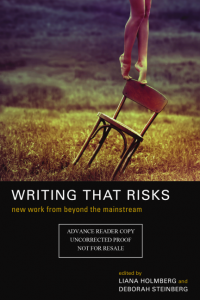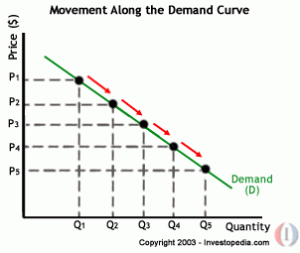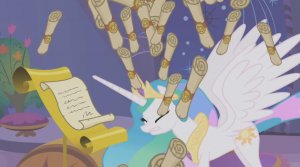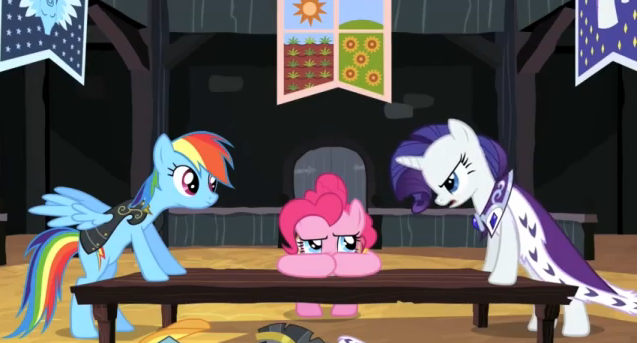Posts Tagged "my little pony"
Premise Bias
A few years back I was in a bar with a couple of friends. M had just gone off to grad school and was giving us reports about the people in her program and their work. G was her bestest best friend at the time and had already heard all of the shit-talk. I was sipping a particularly well mixed snake-bite (half stout half hard cider); I put it down quickly and said, “Yeah, so what was so terrible [about their work]?”
M said, “Oh, my God, Sharif! It’s just so baaaad! I was wondering how they got into this program, you know?” G started giggling, already aware of the dirt. “One guy, wrote a poem about werewolves having sex.” G couldn’t restrain herself and burst out laughing.
I smiled, “So why was it bad?”
M restrained a yell, “It was about werewolves having sex!”
“And was it not done well?” I asked. G began to stop laughing.
M insisted, “It was about werewolves having sex!” M noticed that I wasn’t really amused, in fact I was judging her for closed-mindedness.
“Okay, well, hear this one! Someone wrote a poem about vampires!” She said a few more things and shot down her classmates, offering little more explanation than premises. As someone who writes high concept work like a stork who kidnaps babies (“Stork” in Writing That Risks to be released by Red Bridge Press Fall 2013) or a Roomba that kills itself (“Roomba Suicide” Perceptions Magazine of the Arts. Print only. 2013.) I had a feeling that they were indirectly trying to take digs at me.
I asked, “So what subjects can art be about and what subjects are not art?”
Where as M and I were writing students, G was an art/writing double major. While writing classes do not actually address the questions of “What is art?” art classes definitely do. G stopped laughing.
M was trying to regain her status and justify her remarks, “No, you just don’t do poems like that.” This was just like her, to say an opinion like it is fact and expect you to take it on her authority.
“What about a poem about a video game?” I asked. Sensing that this was a trap, she didn’t spring it. I sprung it on her anyway, “What if that video game was Sega Ghost Squad?” She knew I was referring to the poem by Colette Atkinson, our former professor at our university. “Ideas aren’t writing. Anyone can have ideas. It’s how you write them that determines if they’re good. Colette Atkinson used Ghost Squad very well to tell the story of a shitty relationship…Just because it’s not ‘high art’ doesn’t mean it’s bad.”
I’m not sure whether they were trolling me or not, but the discussion ended there.
I was reminded of this anecdote when I was talking on the phone with a writer in my program and friend Jonathan Rosenthal (Pound Puppies, Recess, Hey Arnold!). We were talking about the premise for Pixar’s “Ratatouille,” which is a great film. Jonathan said, “No premise is bad so long as it has a good answer to the question ‘And then what happens?'”
Seriously, that is such a FANTASTIC writing perspective that I’m going to quote it again:
“No premise is bad so long as it has a good answer to the question ‘And then what happens?'” -Jonathan Rosenthal
Looking at the premise for My Little Pony: Equestria Girls, it is a pretty awful premise.
Princess Twilight Sparkle must leave her land of magical talking ponies and become a human in the human world where she must become prom queen to win back her stolen crown.
It was so awful that people started throwing fits about it, and death threats were given to DHX (the studio that animates MLP). Before this similar hostility was given to MA Larson for writing the episode where Twilight Sparkle becomes a princess/god/alicorn. Yet after seeing the actual execution of these premises, people remembered that Megan McCarthy and MA Larson are actually pretty bad ass writers who can handle their shit.
A premise itself, is not enough to judge a work. If you are this closed minded you can keep yourself from writing the next great novel, or publishing it, or making it into that movie. Keep in mind that bronies should have never liked My Little Pony. They discovered that despite the genre, the premise, and the demographics, the execution of the show made it something more than just engaging, but heartfelt and powerful.
I really liked Spenser’s (Brony Clubhouse) video expressing his disappointment with the over reacting part of the brony fandom who should know better than to judge a work by the basic idea alone.
So let’s play a game. I’m going to put a list of premises/ideas of existing properties. Your studio has developed a reputation for producing terrible films. They hired you to try to turn the studio’s reputation around. You are authorized to make 5 properties, whether it’s a TV show or a movie, or whatever. You will not be working on the films, your job is just to green light the films you think will be the best. You must reject 5 ideas and go with the best 5 based upon their premise. Honor system. No cheating if you recognize the title. Remember, your studio is not concerned with money, but quality.
- Sex-changing martial artist finds himself having to deal with the challenge of having too many fiances while constantly having to engage his enemies on various forms of combat from martial arts Japanese tea-ceremony to ice skating martial arts fighting.
- A teenager takes a time traveling car back in time accidentally undoing the circumstances of his own birth.
- A teenage girl finds herself obsessively and dangerously in love with a monster hiding as a human, which is perfectly evolved to be irresistible.
- A bunch of high school kids from different cliques attend Saturday school together and learn they aren’t so different.
- A rat who wants to be a chef tries to achieve his dream by controlling a human who is hopeless at cooking by pulling his hair.
- Unlikely paranormal investigators must save the world from the upcoming apocalypse to be brought about by The Great Destroyer, who takes the form of a giant commercial marshmallow man.
- A bookworm studying magic is forced to study the magic of friendship in order to prevent the world from being cast in eternal darkness.
- The last members of a dying planet shoot their baby to a distant planet whose sun gives him super strength, speed, vision, and flight.
- After a failed attempt to drown himself in a river, a man finds himself stranded on an island in the middle of the city, where he uses trash to adapt to his new life.
- Things go wrong in a theme park full of dinosaurs causing a life and death situation for the people there.
BONUS: Teenage Mutant Ninja Turtles
Ranma 1/2: If you thought of making something with this premise and decided against actually doing it, then you’re not Rumiko Takahashi, at a point Japan’s wealthiest woman, who made a fortune off of Ranma 1/2 and Inuyasha. Both of these series are not just widely popular but are considered classics and a must watch for any anime enthusiast.
Back to the Future: The way I wrote that premise, I would not have made this movie and I love time travel…and cars. But the premise just sounded bad or at least like it could go bad at any moment.
Twilight: I have to say I would have put my money on making this. The premise sounds fantastic! But are these good movies/book? I’m of the popular opinion that they aren’t (even though I’ve only read a chapter or two of the books). That’s the reason I included it. To show that even a good premise with poor execution will make a bad movie. Really what we’re learning here is that a writer’s ability isn’t in his ideas, but how he brings them to life.
The Breakfast Club: This movie does not have a premise that would make me risk investing my money, but it’s a classic. It resonates with a lot of people…people who still live with their parents.
Ratatouille: This is the film that inspired this blog post. At least it inspired the conversation that inspired this blog post. After the movie was made someone at Pixar was lamenting how stupid the premise was, even though the film ended up being fantastic.
Ghostbusters: Proving that with humor you can really get away with a lot. One of the better TA instructors at UCI taught me that with humor, camp, self awareness, and lampshades you can make a really enjoyable work which gets away with anything. Ghostbusters not only gets away with murder with the Stay Puft Man, but they created one of the most recognizable scenes in cinema.
My Little Pony: Friendship Is Magic: Well, without someone buying into this premise, none of us would be here. I’d probably have a much more cynical blog where I’m just like every other jerk writer trying to establish some sort of platform for himself. I’d probably be trying to exploit my race or something. Anyway, without someone giving the magic of friendship a chance, we wouldn’t have followed Twilight Sparkle and friends. We wouldn’t have discovered that a world of ponies could be so rich with humanity.
Superman: Coming from one of the dumbest origin stories ever, Superman has become the icon of modern day mythos and American society. So goes America, so goes Superman. “Man of Steel,” possibly being the first film to crash airplanes in building since 2001, is really a film about the divided identity of America post 9-11. Speaking of “Man of Steel” I would argue that this film shows how a movie can be simultaneously excellent and terrible based on execution alone and not the premise.
Casaway on the Moon: This is a South Korean film, so of course they’re obsessed with the effects of capitalism and technology on the human individual. This film explores the human pain and loneliness while being surrounded by people. This is profound, powerful, creative, fun, moving, and on Netflix. It would be a shame if someone passed on this because of the premise.
Jurassic Park: Of course this film made a gagillion dollars. As a kid this was the only film I saw which traumatized me and made me afraid of getting eating by a T-Rex each time I went to the bathroom. If that doesn’t make a great film I don’t know what does…other than great characters, plot, tragic elements…
Bonus: Teenage Mutant Ninja Turtles: Enough said.
It’s natural for us to create patterns of what will be good and what won’t be. It’s to save us time and let us know that a movie about a hot tub time machine is a terrible idea. But keep in mind that good artists are not trying to just remake what has been done, but to break expectations and destroy the established paradigms. My Little Pony was done poorly a few times in the past. This My Little Pony is so great, because Lauren Faust broke paradigm after paradigm of what we expect from television for little girls. Unfortunately, premise bias is strong in the writing community and risk taking isn’t.
Read MoreHow To Do a Kickstarter: Perks
So Kickstarter uses a concept called “Price Discrimination” which allows you to reach different markets simultaneously and increase your profits by including people who won’t pay as much. It’s the same logic as the Playstation “Greatest Hits,” you sell the same game for cheaper after you’ve already sold to all the people who were willing to pay $50 for a $20 game.
But selling in tiers is a little different from just selling a product and later changing your prices. So here’s some advice on how to sell to these markets and maximize profits.
Low Tiers
Pocket change adds up. So do costs. The key to keeping your profits in the lower tiers is to offer something of value while keeping your hard costs (materials, manufacturing, and shipping) down.
Offer something that can be delivered digitally: File downloads, links to hidden behind the scenes Youtube videos, digital drawings, etc. This will keep your hard costs down.
Offer something that costs little and ships for cheap: Autographed photo, drawing, etc.
Thank You Tiers
A Thank You Tier is a tier where the donor gets nothing but a “Thank you.” Most projects have one. I think this is a lack of imagination (see options above) and a leak of potential money.
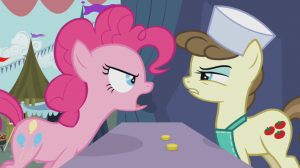
“No pony wants to buy a THANK YOU! Your appreciation should be an expected part of any transaction! People want to help you, but they don’t want to just waste their money! If you want to penetrate the nickle and dime markets you had better come up with a clever way to actually GIVE A PONY SOMETHING FOR THEIR MONEY AND DO IT FOR FREE!”
As of this writing the Connu campaign is only half-way done and due to the digital nature of their project, they can offer real incentives to their lower tiers without adding to their hard costs. In the $10 and under tiers they’ve earned $553. If this momentum keeps up they will likely fill 10% of their quota with the nickle and dime tiers.
Another campaign I’ve followed was an Indiegogo campaign was for a short film called “Shadow.” This campaign followed so many of my smaller rules and had great business strategy! At the same time there were many oversights that left much to be desired, or even felt insulting to the contributor. For instance they had 2 thank you tiers ($2 and $10), but they will only thank someone on their website if they give $10. How stingy! And what does that say to the $2 contributors? It says that even though they say “thank you” that they don’t appreciate it! It’s no surprise that Shadow only made $62 in the lower tiers, which is less than 1% of their quota.
Middle Tiers
Selling to the middle tiers is usually about value. Is the price reasonable? Is this a value or a good use of my money? Is this rare? Is this special?
You’ll find greater success with the middle tiers if you really show why your project is special and if this is where you’re simply selling your project: Bluray of the movie, copy of the game, CD of the album, etc.
If you have a monopoly on your product and you can generate enough interest in it (why you should invest in your video), then you can safely inflate the price of your wares.
Note: Being too greedy will cost you
Law of Demand states that goods have a price which will yield the greatest profit. If you price something too high, you will sell too little (which hurts profits). If you price something too low, you will sell much more, but you still won’t make much of a profit. The key is to try to find the right value (P3 and Q3 in the chart above). The Law of Demand is sometimes called the “Law of the Bloody Obvious,” probably a British term.
Thus fair pricing will actually increase your profits. You should do a survey of your friends (unless your friends are rich, then ask other people…or actually you should just ask your rich friends for money) to find a good prices. Keep in mind that what people will pay for say “The Brony Documentary” might not be the same as what they’d pay for “indie short film about failed marriage.”
Top Tiers
The top tier donors are usually people who have too much income and want to be apart of something. Money is not particularly a problem with these people. Usually what most Kickstarters do is find a way to either give these donors super rare things, such as evenings with celebrities or autographed rare merchandise or they find some way to include the donor into the creation of the project itself: an NPC (non person character), an extra in the background of your film or comic, etc.
The Shadow campaign had a great strategy for the top tiers: sell to businesses. They offered walk on roles or product placement and advertisements in the film. It’s impossible to tell whether anyone bought this from them or whether they elected to be an extra in the film, so I’ll say they earned 0-10% of their funding this way. Either way it’s a really good idea. If someone won’t spend their own money, they might spend their business’ money.
Tier to Tier Sales
So each tier adds something new to the perks below it for an added cost. Many crowd sourced projects leak money by not making the cost increase equal to what is added. So many of their donors choose a lower tier than they normally would. Now it’s impossible to accurately guess opportunity costs, but I’m going to speculate a little.
The Indiegogo campaign for the unreleased tapes of the Brony Documentary had 227 people donate $10, but only 29 people donate $25. This is a huge drop off from
These were their perks.
$10
-Digital download of film
-Photo album access$25
-Sticker sheet
Essentially you’re paying $15 for a sheet of stickers. These stickers cost more than the actual video file. I wonder how many people donated $10 instead of $25 because they couldn’t justify spending $15 on stickers.
I believe the following would have generated more money for them, simply by adding more value to the added investment.
$10
-Digital download of film$25
-Sticker sheet
-Photo album access
$10 tier just gives the bronies what they want, to see the added footage. $25 gives you the stickers and exclusive access to photos.
That’s it for perks advice! Good luck!
More:
How To Do a Kickstarter: Sharif Acts Like Don Draper on an E-Mail (Public Relations)
How To Do a Kickstarter: Perks
How To Do a Kickstarter: E-Mails
How To Do a Kickstarter (Short Version)
How To Do a Kickstarter: E-Mails
Skullgirls has probably done one of the most successful campaigns ever. Their initial goal was $150,000, but they ended up earning close to a million dollars. If you look back at the How To Do a Kickstarter (Short Version), and compare it with how Skullgirls did their campaign, you can see what they’ve done right.
One really important thing that I forgot to mention in the short list (might go back and add it) is INVOLVE YOUR DONORS IN THE PROJECT! Skullgirls created surveys and everyone who donated any amount of money got some say in who the new downloadable character would be. This is how they got me to donate. I paid $1 so that I could vote for Marie, a character voiced by Rina-Chan. By the way I should note, I DON’T EVEN PLAY SKULLGIRLS!
This brings me to the greatest benefits and faults of their campaign, E-mails.
Do’s
1. Keep your donors updated
Use the e-mail feature of Kickstarter to keep your donors informed about what their money is doing. People work hard for their money. They want to know what they helped to create with it. This will make them more inclined to contribute to future projects or spread word of mouth on this one. Dale Carnegie said, “People support a world they help to create.” And boy, let me tell you, Skullgirls kept the donors updated…maybe too much. More on that in the “don’ts” section.
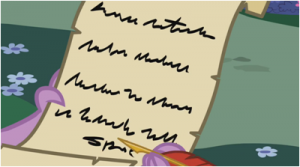
Dear Jerks,
Today I used your funds to buy a burrito. It was delicious. You guys are such saps.
-Spike (Bad example. Good idea.)
2. Involve your donors
Skullgirls gave all donors a chance to vote on the new downloadable character. They used the e-mails to send out links to surveys which allowed the donors a chance to take a real role in the development of the game. Based upon how much additional funding they’ve received, I believe this alone could easily be responsible for over $100,000 of their contributions.
3. Rally the troops
People have given you money, because you’re their friend and they don’t want to hear you bitch about how you didn’t support them they believe in what you want to do. Sending out mid-campaign e-mails to remind people the clock is ticking and that they can help by sharing your campaign with their friends is a good way to make money. Don’t just crowd source your funds, crowd source your fund gathering. With Rina-Chan’s participation, quite a few bronies championed the funding of Skullgirls. At least I know Spenser from the Brony Clubhouse was shouting from the social media heavens about it.
4. Sell to the lower tiers
So your creative team is paid, your work is done, and the final product is hitting stores. Now what? Well, not everyone bought your work. The lowest tiers probably gave you a dollar for basically nothing in return. They’re clearly a hot lead for someone who likes the project. E-mail them and let them know that your movie/game/hot dogs are now for sale.
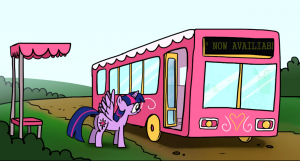
“I know you didn’t give me enough money to actually get a ‘free’ bus playset, but it’s now available in stores for you to purchase with additional money.” (Image Source Dawn Somewhere)
Maybes?
1. Numbered only for uniformity but this is the only maybe. It’s a good idea to use this e-mail list serve to promote future projects.
This is a good idea, because these people are already interested in what you do and are hot leads for your next project. IT IS A BAD IDEA TO JUST START E-MAILING PEOPLE! The right way to do this is to e-mail your donors (burying the lead) thanking them, and then asking if they would like to sign up for a mailing list about your future projects.
Trust me, you don’t want to e-mail people directly about your other projects (see the first don’t). Best case scenario people unsubscribe. Worst case scenario, they flag you as spam and your e-mail will get shot down by spam blockers. It’s in your best interest to ask them to subscribe to your personal newsletter (Bonus tip: You’ll get more people if you reassure them that they can unsubscribe! Also make a method for them to unsubscribe.)
If you’re so daring, don’t be a selfish tool when doing this. Keep in mind that your work may have brought publicity for the stars of your project. Your donors may want to follow the artists or actors on Twitter or Facebook. Spread the love, because those stars probably promoted your Kickstarter.
Don’ts
1. Don’t spam!
Do not send people info about other people’s projects or the projects of your friends. Try to keep everything relevant and on topic to what people signed up for (I know this kinda contradicts the advice immediately above this).
2. Don’t overwhelm your donors.
This is the one thing I hated with the Skullgirls campaign. They e-mailed me ALL THE TIME. Limit e-mails to a MAXIMUM of 2 a week.
3. Most importantly, don’t make it all about yourself or your project.
Your donors have just made it possible for you to fulfill a dream. They may do it, because they love you. But they can also be motivated by their desire to be a part of something important. It is never a bad idea to make someone feel special. Look through your e-mail and see how many times you say “I” or “We” versus how many times you say “you.” Remember even though this is about you, make it about them. They gave you money, it’s the least you could do…other than the perks they bought.
More:
How To Do a Kickstarter: Sharif Acts Like Don Draper on an E-Mail (Public Relations)
How To Do a Kickstarter: Perks
How To Do a Kickstarter: E-Mails
How To Do a Kickstarter (Short Version)
Underrated Never Talked about Skill for Writers: A Rambly Sort of Thing
Today in class I started bringing up theory again. Recently I’ve noticed my professor looks at me and smiles when I bring up some obscure topics and essays (I don’t know if she did that all semester or just felt nostalgic because today was the last day of class). This time it was a piece by a Korean feminist talking about masculinity in oppressed cultures. She said to me, “I’m always amazed by what you can bring to the conversation.”
Later tonight I went to visit a friend in the hospital. A week earlier she was just an acquaintance. In the hospital I argued with a nurse about why her pain wasn’t being managed and why the doctors seemed to think post-op pain of a 9 out of 10 was “normal” and didn’t need treatment. My mom was a pain management nurse and now teaches nursing at a university. I learned the lingo. I learned how to ask for drugs without seeming drug seeking. I learned how to advocate for my friend.
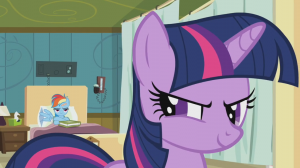
“I have a manipulative speech ready that will get you so many pain meds that you’ll need pain inducing drugs just to keep you on the pain scale. Crap, I think your charge nurse heard my soliloquy.”
On the drive home I thought about my teacher’s words. I realized something I decided was probably the biggest gift to myself.
I came up with two rules for myself:
1. Whenever I didn’t know something, I would ask about it.
This includes what words mean, things I claim to be an expert on, and things that people would probably prefer not to talk about.
2. I would let people talk to me about any subject.
I let my cousins and some of my friends teach me about cars. I’ve let my sister (a women’s health nurse) teach me about different speculum, benefits of clear plastic over metal, and that some of them have lights. My mom taught me about pain management in hospitals. I’ve had people talk to me about all kinds of subjects from Apple products to humor theory to rollercoasters to Wutang Clan.
If you don’t want to hear about something, it’s probably, because you don’t know enough to appreciate it.
These rules will help you develop a sense of curiosity and wonder for the human creature. Something that should show up in your writing.

This is from my lecture notes last fall when my Professional Writing Core teachers were explaining that curiosity and wonder are at the center of all art.
Now people will go out and people watch. Wonderful activity, but also very shallow and superficial. You’ll only get the surface without context. If you talk to a person, they will teach you about entirely new ways of seeing the world, maybe these ways aren’t always positive. Of course this is granted they even want to talk to you.
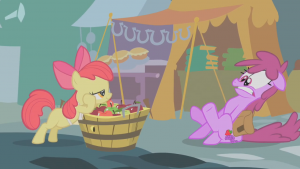
“Aaah! A humanities major working retail! Get your low income potential and broken dreams away from me!”
“That’s interestin’ and so tellin’ about yuh social background, upbringin’, ideologies, and yuh way of life.”
Most people want to talk about things. Some people will even talk to you about the worst tragedy to ever happen to them. More people will tell you these things if they feel you’ll listen and understand.
I won’t tell someone to stop talking. I’ll interrupt, because I’m so excited about the conversation, but I won’t tell them to stop talking.
It’s beautiful. The human being. I was with a girl and angry at the world. I said, “I have never felt so misanthropic.”
She laughed (and not just at how angsty I was being), “You’re not a misanthrope. You’re an anthropologist. I’ve never seen someone so in love with people.” This was a surprise to me. I didn’t realize this was true. I also didn’t realize she could ever show this level of understanding about me. At least I used to think that. It must be untrue since I fell in love with her.
Talking to people, reading their blogs will expand your mind more than anything (Even if it’s starting to get unfocused, rhapsodize-y, and digressive). You’ll never know what you’ll learn and from where. Did you think you would find a passionate, sincere, intellectual blog about the human condition with a bunch of ponies on it?
I’ve talked to a drunk punk rock bassist in the Inland Empire about his view on the world, it was disparate from the views of a privileged girl I talked to in Orange County, but there is always confluence. We want the same things: love, respect, to feel special, safety, etc.
We all have the fear of time and being mortal adding pressure on our desires. From this is conflict. From this we do our worsts to each other and even our bests. When written with justice to the characters, this conflict will allow you to see yourself in the worst of people as well as the best. We are all the same, it’s the priorities and the situations that make us different, whether by nature or nurture.
There’s a price to this, the more you learn what people want and their motivations, the harder it is to judge them. Although, this seems positive, keep in mind that these people will make you mad. They will hurt you. You will feel mad and stay awake at night. You’ll wish you were just wondering why they would do something to hurt you, but you’ll know why. You’ll know their motivations, what they want in life. You’ll know that if you were them, desperate for the same petty things, then you would hurt other people for them as well. It would be hard and wrong for you to hate them for being who they are. So you don’t take any action, even though you’re hurt.
With this understanding there’s nowhere for your hate and frustrations to go. You’re stuck with them.
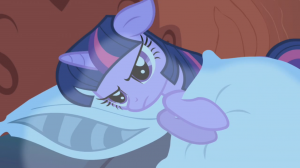
“I understand that her belief system doesn’t allow for the idea of platonic friendships between people of opposite genders, but that doesn’t mean she is entitled to treat me like a second class citizen even if she is trying to keep me from ‘falling for her.’ God that’s so egotistical, it’s sick, but then that belief has probably just been reenforced by a lifetime of being a pretty girl and having every guy friend fall in love with her, requiring her to explain why things wouldn’t work out. The poor girl probably lost a lot of friends growing up. Man this sucks that her past is determining why I don’t get to have my friend! After all the times I’ve looked out for her! Well, this might be her form of looking out for me and my feelings… Why am I always the expendable one?! I hate this.”
Sorry, where was I? Oh, yeah, people will reveal more to you than they realize. They will tell you their ideologies, their secrets, their experiences even if they don’t intend to. And isn’t understanding how other people think and act what character work is all about?
That’s not necessarily a rhetorical question. Let me know how you think about anything I’ve brought up. Clearly, I’m interested.
PS. For more on this subject read Virginia Woolf’s short story “An Unwritten Novel” to get the value of people watching and some of its drawbacks. For the benefits of talking to people and how you can learn things about their character that they themselves don’t even realize they are saying read Robert Browning’s “My Last Duchess”
Read MoreA Thought on Interpersonal Communication
I was on my colleague’s blog last week. She wrote her stance on cursing. I made a comment which inspired her next blog post about the bi-directionality of human communication.

